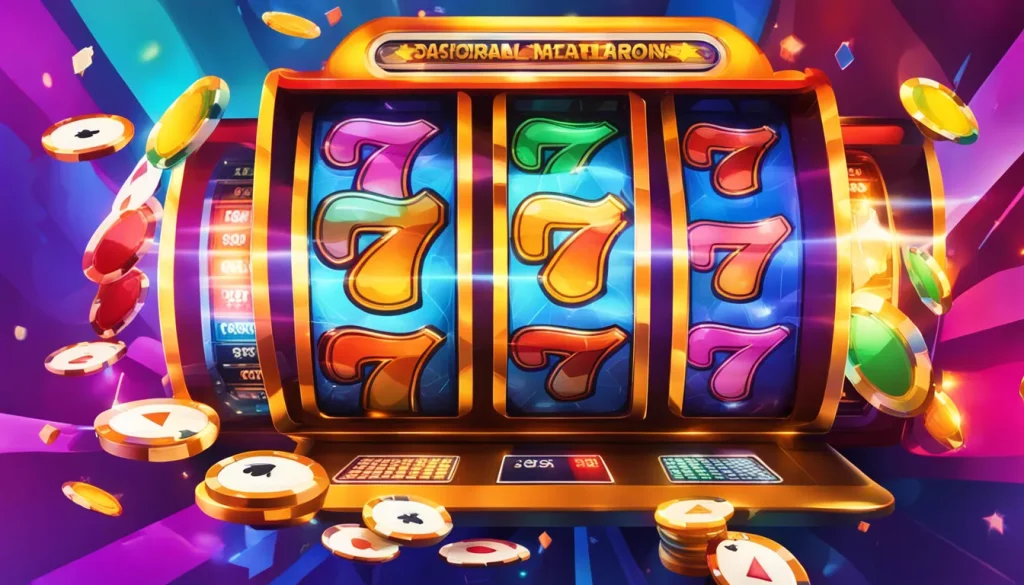Slot machines have come a long way since their inception in the late 19th century. The first-ever slot machine, known as the Liberty Bell, was invented by Charles Fey in 1895. This machine had three mechanical reels with symbols like horseshoes, diamonds, spades, hearts, and a cracked Liberty Bell, which gave the machine its name. Players would pull a lever to spin the reels, hoping to line up symbols for a win. The simplicity of the design and the thrill of potentially winning big made these machines an instant hit.

The mechanical slot machines were purely mechanical, meaning the outcome of each spin was determined by the position of the reels. The machines were operated by pulling a lever, which earned them the nickname “one-armed bandits.” The use of physical reels and a lever made these early machines both simple and engaging. However, the mechanical nature also meant that there were limitations on the number of symbols and combinations that could be included, limiting the potential payout sizes.
The Transition to Electromechanical Slot Machines
The next major evolution in slot machines came with the development of electromechanical machines in the 1960s. These machines still used physical reels, but the lever was replaced with a button, and the reels were powered by an electric motor. This innovation allowed for more symbols and paylines, increasing the excitement and potential rewards for players.
One of the most significant advances during this period was the introduction of the first fully electromechanical slot machine by Bally in 1963, known as the Money Honey. This machine featured a bottomless hopper and automatic payouts, which further increased its popularity. The incorporation of electronics allowed for more complex game designs and more significant jackpots, paving the way for the future of slot gaming.
As the technology evolved, so did the complexity of the games. Slot machines began to feature multiple paylines, bonus rounds, and progressive jackpots, offering players more ways to win and increasing the overall excitement of the game. The introduction of lights, sounds, and themed designs also helped to attract a broader audience to slot machines.
The Digital Revolution
The 1970s and 1980s saw the next significant shift in slot machine technology with the introduction of video slots. Instead of physical reels, these machines used a video screen to display the reels and symbols. This innovation allowed for even more creativity in game design, with the potential for more symbols, paylines, and bonus features than ever before.
Video slots quickly became popular in casinos worldwide, as they offered a more engaging experience with vibrant graphics, animations, and sound effects. The flexibility of video slots also allowed for the introduction of themed games based on movies, TV shows, and other popular culture references, further enhancing their appeal.
Another key innovation during this period was the development of random number generator (RNG) technology. RNGs ensured that each spin was entirely independent of the previous one, creating a truly random outcome and ensuring fair play. This technology became a standard feature in all digital slot machines, providing players with confidence in the integrity of the slot gacor games.

The Rise of Online Slot Games
With the advent of the internet in the late 1990s, the world of slot games took another giant leap forward. Online casinos began to emerge, offering players the opportunity to enjoy their favorite slot games from the comfort of their homes. The transition to online gaming also meant that players could access a much wider variety of games than ever before, with thousands of different titles available at their fingertips.
Online slot games retained all the features of their land-based counterparts, including the use of RNG technology to ensure fair play. However, they also introduced new innovations, such as progressive jackpots that could be linked across multiple casinos, allowing for life-changing payouts. The convenience of playing online, combined with the excitement of potentially winning big, quickly made online slots one of the most popular forms of online gambling.
The rise of mobile technology further revolutionized the online slot gaming experience. Players could now access their favorite games from their smartphones and tablets, allowing them to play anytime, anywhere. This increased accessibility, combined with the continued innovation in game design, has helped online slot games maintain their popularity in the digital age.
The Future of Slot Games: Virtual Reality and Beyond
As technology continues to advance, the future of slot games looks set to be even more exciting. One of the most anticipated developments is the integration of virtual reality (VR) technology into slot gaming. VR has the potential to create an immersive gaming experience like never before, allowing players to step into a virtual casino and interact with the games in a completely new way.

In addition to VR, the use of blockchain technology and cryptocurrencies is also expected to play a significant role in the future of slot gaming. Blockchain can provide greater transparency and security in online gaming, while cryptocurrencies offer a new way for players to deposit and withdraw funds.
As we look to the future, it’s clear that slot games will continue to evolve, offering players new and exciting ways to enjoy their favorite games. Whether it’s through the use of cutting-edge technology or the introduction of innovative game features, the evolution of slot games is far from over.
In summary, the evolution of slot games from mechanical reels to digital platforms has been nothing short of remarkable. As technology continues to advance, the future of slot games looks set to be even more exciting, with innovations like virtual reality and blockchain technology on the horizon. The journey of slot games is a testament to the enduring appeal of this form of entertainment, and it’s fascinating to think about what the future holds.
- Step-by-Step Guide to Opting Out of GamStop and Exploring Alternatives - January 3, 2025
- Understanding CBDa: The Next Generation of Hemp Extracts - September 30, 2024
- Mastering Poker – Essential Strategies for Beginners - September 10, 2024
